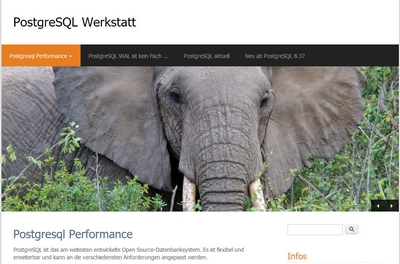Sammlung von Newsfeeds
Chao Li: HighGo’s Patch to Bring GB18030-2022 to PostgreSQL
PostgreSQL supports GB18030 as a client-side encoding. A client-side encoding means you can set the encoding from a client application such as psql with:
psql=# set client_encoding to GB18030This tells the PostgreSQL backend that the client will send SQL statements encoded in GB18030. When the backend receives a statement, it converts the GB18030 byte stream into UTF-8 (the default server-side encoding), and then passes it to exec_simple_query() for execution.
Christophe Pettus: Lies, Damn Lies, and LLM Output.
I subscribe to Medium (don’t judge), and their weekly summary pushed an article to me entitled The Postgres Revolution Is Here: Why Version 18 Changes Everything for Developers. Well, OK, that sounds relevant to my interests. Let’s check it out!
Oh.
Oh, dear.
Oh, sweet Mother of God.
Shayon Mukherjee: Bypass PostgreSQL catalog overhead with direct partition hash calculations
Sarah Conway: Most Desired Database Three Years Running: PostgreSQL's Developer Appeal
PostgreSQL is having more than just a moment—it’s establishing a clear pattern of sustained excellence. For the third consecutive year, this community-driven database has claimed the top spot in the 2025 results for Stack Overflow’s Annual Developer Survey, and the results reveal both what developers value today and where the database landscape is heading.
semab tariq: Achieving High Availability in PostgreSQL: From 90% to 99.999%
When you are running mission-critical applications, like online banking, healthcare systems, or global e-commerce platforms, every second of downtime can cost millions and damage your business reputation. That’s why many customers aim for four-nines (99.99%) or five-nines (99.999%) availability for their applications
In this post, we will walk through what those nines really mean and, more importantly, which PostgreSQL cluster setup will get you there.
Philippe Noël: Syncing with Postgres: Logical Replication vs. ETL
Natalia Woroniec: Postgres in Malmö: Powered by Elly Phneah
gaurav patidar: GSoC 2025 Project Report PostgreSQL
Contributor: Gaurav Patidar
Organisation: PostgreSQL
Mentors: Pavlo Golub, Rajiv Harlalka
Project Repository: pgwatch_grafana
Michael Christofides: "enable" parameters will work differently in Postgres 18
Photo by Elnaz Asadi
Each year I go through the changes and additions to EXPLAIN in the upcoming PostgreSQL major version, to see what we need to add support for in pgMustard.
Andrei Lepikhov: Extra approach to RTABench Q0 optimisation
In the previous post, I explored some nuances of Postgres related to indexes and parallel workers. This text sparked a lively discussion on LinkedIn, during which one commentator (thanks to Ants Aasma) proposed an index that was significantly more efficient than those discussed in the article.
Umair Shahid: When PostgreSQL performance slows down, here is where to look first
PostgreSQL is built to perform. However, as workloads increase and systems evolve, even the most robust setups can begin to show signs of strain. Whether you are scaling a product or supporting enterprise SLAs, performance slowdowns tend to surface when you least want them to.
If you are a technology leader overseeing a team of developers who manage PostgreSQL as part of a broader application stack, or you are responsible for uptime and customer satisfaction at scale, knowing where to look first can make all the difference.
Umut TEKIN: Exploration: PostgreSQL Cluster Backup with Barman(CNPG)
The importance of backups is universally acknowledged in our digital world. One of my former esteemed colleagues told me that he can't think of a database system without backups. This perspective has resonated with me over the years. Today, in our CNPG series, we will be taking a look at the backup solution and how we restore a database from the backup.
Dave Stokes: Book Review - Mastering PostgreSQL 17
Authors find it challenging to write a comprehensive book about PostgreSQL for several reasons. The first is that a new version of PostgreSQL is released every year with changes, new features, and tweaks. I am lucky to have been able to review several new database titles each year, and I would like to let you know that Hans-Jurgen Schonig's Mastering PostgreSQL is a well-written reference.
Tej Kashi: Optimising Cold Page Reads in PostgreSQL
PostgreSQL has a fairly efficient buffer manager that handles data movement between shared memory and disk storage. Among other things, its primary purpose is to serve as a disk cache for the client backend processes for quick access to data. The size of this buffer is dictated by the setting shared_buffers in postgresql.conf, and its default value is 128 MB.
Kaarel Moppel: No, you don't necessarily need extensions to compact Postgres tables
Jan Wieremjewicz: Planning Ahead for PostgreSQL 18: What Matters for Your Organization
Andreas 'ads' Scherbaum: Shlok Kumar Kyal
Andrei Lepikhov: Squeezing out Postgres performance on RTABench Q0
I often hear that PostgreSQL is not suitable for solving analytics problems, referencing TPC-H or ClickBench results as evidence. Surely, handling a straightforward task like sorting through 100 million rows on disk and calculating a set of aggregates, you would get stuck on the storage format and parallelisation issues that limit the ability to optimise the DBMS.
Hubert 'depesz' Lubaczewski: Waiting for PostgreSQL 19 – Display Memoize planner estimates in EXPLAIN
Jeremy Schneider: Graviton2 versus Graviton4
Just a short post, because I thought this was pretty remarkable. Below, I have screenshots showing the CPU utilization of two AWS instances in us-west-2 which are running an identical workload.

